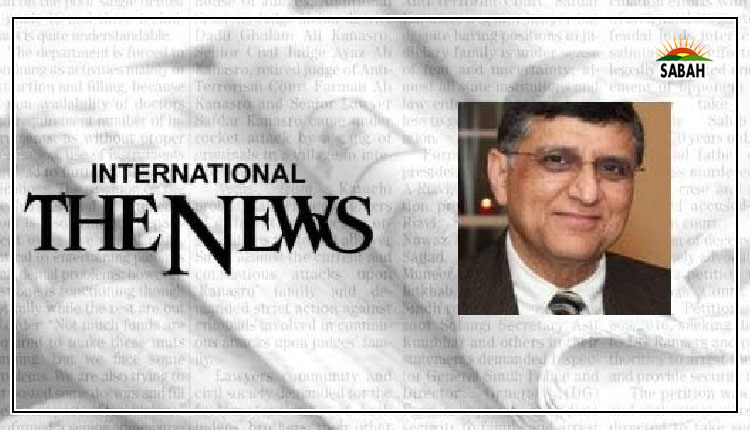Double standard? …. S Qaisar Shareef
On January 24, Twitter took down links to a two-part BBC documentary titled India: the Modi Question, at the behest of the Indian government. The documentary presented the role Narendra Modi the then chief minister of Gujrat played in the 2002 massacres in his state. About 2000 people, mostly Muslims, were reportedly killed.
Coming from the BBC, it was a well-researched production. YouTube also quickly followed suit, making it difficult though not impossible to access the films. The BBC documentary tracks Mr Modis career-long efforts to demonize Indias 200 million-odd Muslim minority, reported The Economist.
It appears that Elon Musks free speech absolutism only goes so far. The BBC is not exactly known to be some extremist fringe outfit, and yet it was effectively silenced with cooperation from US social media sites. Just a few days later, BBC offices in India were raided by Indian tax authorities, pursuing alleged tax law violations an often-used tactic to silence unwanted opposition. After silencing critics at home, Narendra Modi goes after foreign media, read the headline from a recent editorial, also in The Economist.
In a similar move in 2020, Amnesty International, a highly respected human rights organization, was forced to close its operations in India after its bank accounts were frozen. While media and civil rights organizations critical of autocratic governments often find themselves under pressure from authorities, such actions are hardly expected from democracies, certainly not one that is often held up as sharing values of freedom and free speech with the democratic nations of the West.
Yet, it is the total silence and lack of criticism by the worlds leading democracies including the US that raises disturbing questions. Do democratic countries really operate with a double standard when it comes to adhering to principles of civil rights and free speech?
As we reach the one-year anniversary of the Russian invasion of Ukraine, opposition to Russian actions continues to be loudly led by the US and our Western allies. This is a fight between democracy and autocracy, US President Biden has often said. It is estimated that this year Ukraine has received well-deserved and sorely needed military aid close to $100 billion.
A February 24 vote in the UN General Assembly called on Russia to immediately withdraw from all occupied territories in Ukraine. While the vote was nonbinding, it forced every UN member country to take a stand on this unjust and cruel war.
And once again many large countries such as India, South Africa, China, Pakistan and others abstained from voting against Russia. In all, 39 countries abstained or voted against the resolution. Over the past year, countries representing over half the worlds population have been reluctant to openly condemn the Russian invasion.
People in the US often ask the question: why would any of these countries refrain from condemning open aggression against a UN member country?
The answers, of course, are complex. Countries are trying to look out for their economic interests or are compelled out of necessity to not antagonize Russia as the country has vast amounts of oil, gas and grains to sell. But a deeper answer could be that there is a feeling among many of seeing a double standard at play. Many wars and calamities have been barely noticed, but a war in Europe is expected to get sympathy from across the world.
While atrocities committed by the Russian forces in Ukraine are condemned as they should be and as has been documented by organizations like Human Rights Watch and Amnesty International reports by these same organizations about human rights violations against Palestinians living under occupation have been largely ignored.
This war, one hopes, will end in the not-too-distant future and the suffering of the Ukrainian people will ease. The people and the government of Ukraine will receive much-needed assistance to rebuild their shattered country, but the feeling of a double standard at play will remain. Finding funds to assist Ukraine to repel aggression has seen little debate; however, funds to help people reeling from the effects of climate-change-induced catastrophes have been much harder to come by.
The writer is a freelance contributor based in Washington DC. Website: www.sqshareef.com/blogs
Courtesy The News












